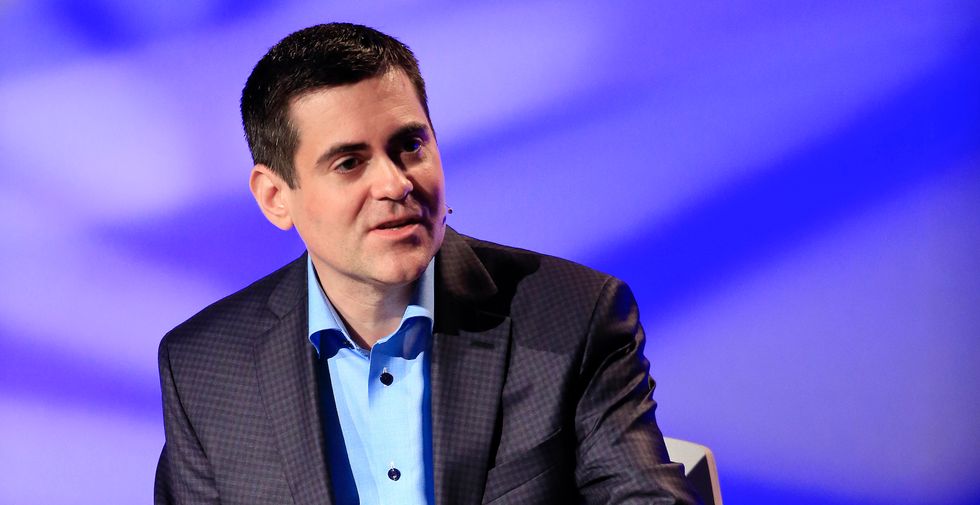
Dr. Russell Moore, president of the Ethics and Religious Liberty Commission (AP Photo/Mark Humphrey, File)

Ever since it became clear real estate magnate Donald Trump would effectively be the only alternative to Democratic presidential candidate Hillary Clinton, evangelicals have been trapped in a bitter battle with one another.
Leading the charge against the thrice-married billionaire was Dr. Russell Moore, president of the Ethics and Religious Liberty Commission, the policy arm of the Southern Baptist Convention, and now he's facing major backlash for his stalwart opposition to the president-elect, who has had his fair share of moral failures over the years.
Southern Baptists make up a large segment of the Christian demographic in the United States, amassing more than 15 million members. While that's a praiseworthy number in terms of evangelism, it certainly presents a problem when it comes to funding the SBC behemoth, the Wall Street Journal reports:
Some Baptist pastors are considering cutting funds that flow from their congregations to the Southern Baptist Convention — or to its policy agency, which Mr. Moore heads — in a potentially dramatic rebuke.In interviews, pastors in multiple states, including leaders of some of the country’s largest congregations, said Mr. Moore’s rhetoric insulted many of the people he was supposed to represent as the Baptists’ chief advocate in Washington, D.C.
“There was a disrespectfulness towards Southern Baptists and other evangelical leaders, past and present,” Baptist pastor Jack Graham said of Mr. Moore’s denunciations of Mr. Trump and some of his supporters. “It’s disheartening that this election has created this kind of divisiveness.”
In a blog post published shortly after the WSJ piece, Moore attempted to clarify his intentions during the campaign, when he appeared to frequently rebuke not just Trump but those Christians who so enthusiastically aligned themselves with the brash businessman.
"I told them then, and I would tell anyone now, if that’s what you heard me say, that was not at all my intention, and I apologize," Moore wrote, responding to pastors who felt he was criticizing all Christians who voted for Trump.
It is worth noting that, according to exit polling, the margin among white evangelicals between Trump and Clinton was a staggering 81 percent to 16 percent in Trump's favor, the widest gap separating two candidates since 2004.
Regardless, Moore is remaining faithfully opposed to the president-elect. In a First Things essay in the Christian journal's January 2017 issue, the ERLC president argues, "The old-guard religious right political establishment normalized an awful candidate," further noting that religious conservatives were among the only demographic "willing to defend serious moral problems, in high-flying moral terms no less."
Moore's unflinching rejection of Trump has not gone over too well with many of his fellow leaders, including Liberty University President Jerry Falwell Jr., a big Trump supporter, who over the summer suggested Moore might be a "closet liberal" because he disapproves of the president-elect.
But it has garnered the kudos of some younger evangelicals:
This stance won him some support, especially among younger evangelicals who are becoming more diverse and appeared to be turned off by the culture wars of their parents’ generation.“Young Christians like me are craving authentic leadership, people willing to risk access in order to stay true to their goals,” said Ruth Malhotra, a 32-year-old Baptist and lifelong Republican who opposed Mr. Trump. She said Mr. Moore represented that conviction as well as anyone, adding she hoped voices like his “will become the leading voices."
For many Baptist leaders, their main beef is that Moore's bold positions on the imminent Trump administration may hurt their chances of currying favor in Washington, D.C., given the reality-TV-star-turned-politician has a lengthy history of using his famous Twitter account to make mountains out of mole-hill-sized criticisms.
But the truth is, many of the more red-blooded conservative leaders in the Southern Baptist community have had problems with Moore ever since he was elected to his post in 2013. Over the past few years, Moore, who holds deeply conservative views on issues like abortion and marriage, has sought to create a more compassionate image for the SBC, particularly when it comes to reaching out to ethnic minorities and the LGBT community.
Not everyone has appreciated Moore's shift, and his refusal to fall in line with Trump might be the final straw for some of his evangelical counterparts.